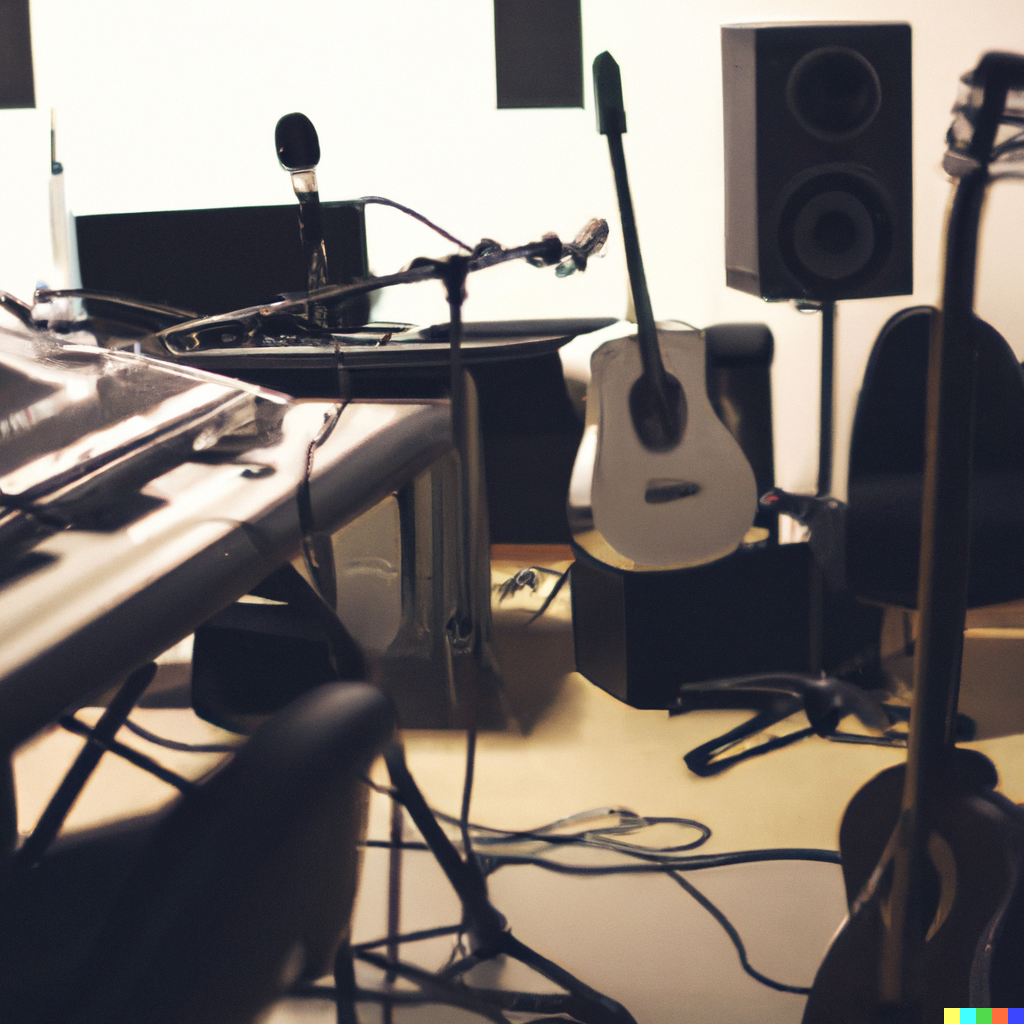Why Are Recording Studios Dark: Shedding Light on the Mystery
Have you ever wondered why recording studios are so dimly lit? It’s a question that’s puzzled many music enthusiasts and aspiring musicians for decades. Is it for aesthetic purposes, or is there a practical reason behind it? In this article, we’ll explore the reasons why recording studios are dark and uncover some of the secrets behind this age-old mystery.
Table of Contents
- Introduction
- The History of Recording Studios
- The Role of Lighting in Recording Studios
- Why Are Recording Studios Dark?
- Preventing Glare and Reflections
- Controlling Lighting for Video Recording
- Creating a Comfortable Atmosphere for Musicians
- The Benefits of a Dark Recording Studio
- Improved Concentration and Focus
- Enhanced Creativity and Inspiration
- Minimized Distractions and Interference
- Lighting Alternatives for Recording Studios
- Conclusion
- FAQs
1. Introduction
When you think of recording studios, the first thing that comes to mind is probably the image of a dimly lit room filled with equipment, instruments, and soundproofing materials. It’s an environment that’s synonymous with the creation of music, but have you ever stopped to wonder why it’s so dark in there? While it may seem like a trivial detail, the lighting in a recording studio can have a significant impact on the quality of the recordings and the comfort of the musicians.
2. The History of Recording Studios
To understand why recording studios are dark, we need to take a trip back in time to the early days of recorded music. In the early 1900s, when the first commercial recordings were made, studios were often small, makeshift spaces with limited equipment and resources. As technology advanced, recording studios became larger and more sophisticated, with a greater focus on sound quality and production value.
3. The Role of Lighting in Recording Studios
While lighting is often associated with the visual arts, it plays a crucial role in the recording process as well. In addition to providing visibility for the musicians and engineers, lighting can affect the acoustics of the room and the mood of the performers.
4. Why Are Recording Studios Dark?
There are several reasons why recording studios are intentionally kept dark:
4.1 Preventing Glare and Reflections
Recording studios are designed to be as acoustically neutral as possible, which means that sound is absorbed rather than reflected. This helps to minimize echoes and unwanted noise in the recordings. Bright lights can cause reflections and glare, which can interfere with the recording process and make it difficult to achieve the desired sound.
4.2 Controlling Lighting for Video Recording
In addition to recording audio, many studios also produce video content for promotional purposes. By keeping the lighting consistent and controlled, it’s easier to create a visually appealing and professional-looking video.
4.3 Creating a Comfortable Atmosphere for Musicians
Recording sessions can be long and grueling, often lasting several hours or even days. By keeping the lighting low and comfortable, musicians can relax and focus on their performance without being distracted or fatigued by harsh lighting.
5. The Benefits of a Dark Recording Studio
While the primary reason for keeping recording studios dark is to improve the quality of the recordings, there are several other benefits as well:
5.1 Improved Concentration and Focus
Dark environments can help to reduce distractions and improve concentration, allowing musicians to focus on their performance and achieve their best possible results.
5.2 Enhanced Creativity and Inspiration
Many musicians find that a dark environment helps to stimulate their creativity and inspiration. The absence of bright lights and distractions can help them to tap into their imagination and produce more innovative and experimental music.
5.3 Minimized Distractions and Interference
Bright lights can be distracting and cause eye fatigue, which can interfere with the recording process. By keeping the lighting low, the musicians can focus on their performance without any interruptions or discomfort.
6. Lighting Alternatives for Recording Studios
While recording studios are typically designed to be dark, there are some alternatives to traditional lighting that can be used. One popular option is the use of LED strips or panels that can be placed around the room to provide a subtle, ambient glow. This helps to create a comfortable and relaxed atmosphere without interfering with the recording process.
7. Conclusion
In conclusion, the reason why recording studios are dark is to prevent glare and reflections, control lighting for video recording, and create a comfortable atmosphere for the musicians. While the benefits of a dark environment may not be immediately apparent, they can have a significant impact on the quality of the recordings and the performance of the musicians. So the next time you step into a recording studio, take a moment to appreciate the dimly lit environment and the magic that happens within its walls.
8. FAQs
- Does the darkness of the studio affect the mood of the musicians?
- Yes, the darkness of the studio can help to create a relaxed and comfortable atmosphere that can improve the mood of the musicians and enhance their creativity.
- Can lighting affect the acoustics of the recording studio?
- Yes, bright lights can cause reflections and glare that can interfere with the acoustics of the room and affect the quality of the recordings.
- Are there any alternatives to traditional lighting in recording studios?
- Yes, LED strips and panels can be used to provide a subtle, ambient glow that creates a comfortable atmosphere without interfering with the recording process.
- Does the darkness of the studio affect the quality of video recordings?
- No, by controlling the lighting, it’s possible to create visually appealing and professional-looking video recordings in a dark environment.
- Can the darkness of the studio be harmful to the musicians’ eyes?
- No, the lighting in recording studios is designed to be low and comfortable, which minimizes eye fatigue and discomfort.

Leave a Reply